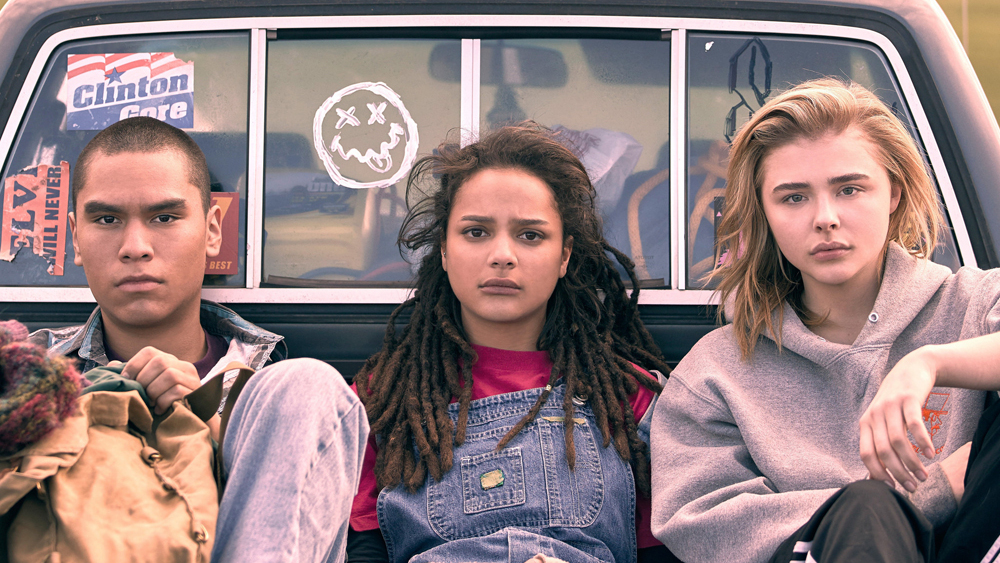by Hogan Short
Vancity is currently proudly playing host to the Vancouver International Women’s Film Festival and it is also International Women’s Day today. We are proud to showcase the talent by talented women because sadly their voices are often unheard. There is a systematic dysfunction in the ability to get the jobs in film and then those accomplishments are often unrecognized. In 2016, Canadian April Mullen made the film “Below Her Mouth” with a cast and crew entirely made up of women. These important decision by filmmakers and producers are what it will take until a fair shot is given. In 2018, Rachel Morrison was the first woman nominated for Best Cinematography, ever. This year, zero women were nominated for Best Director at the Academy Awards. Last year, Greta Gerwig rightfully was nominated for “Lady Bird”, but was a woman alone in the category. You then have to go back all the way to 2009 for the second latest time a woman was nominated in the category and that was for tremendously talented Kathryn Bigelow for her small, masterclass PDST themed war film “The Hurt Locker.”
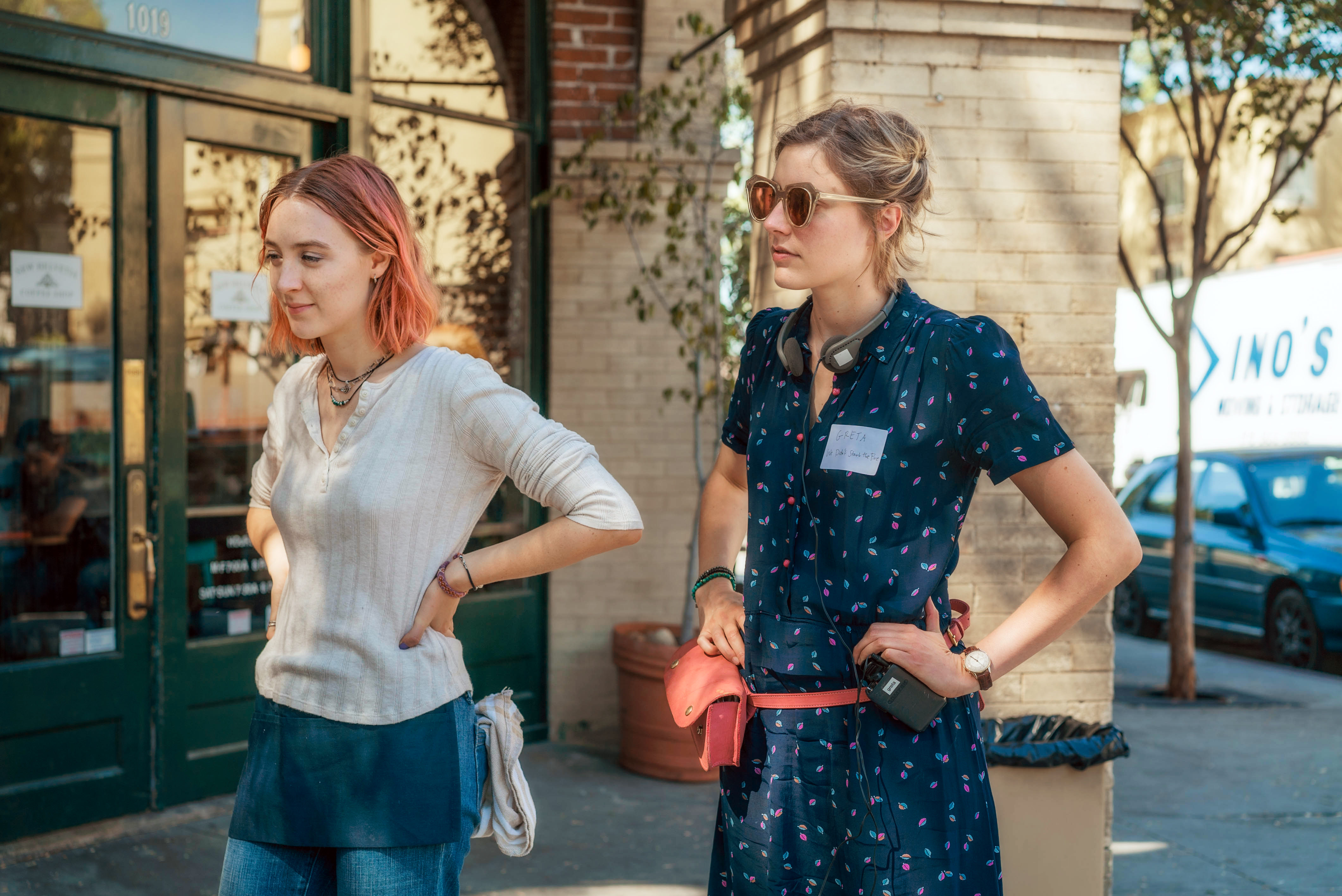
The Oscars are not the understood standard of what is truly great, but they are a great indicator of where our culture is in given year. They are a first filter for how we view a year in film when we look back at cinematic history. The lack of female representation is wrong and should be outdated and sadly isn’t. In hopes to honour the day, here is our list of just a few of the female directors who created incredible films in the last year and hopefully get the chance to make make many more.
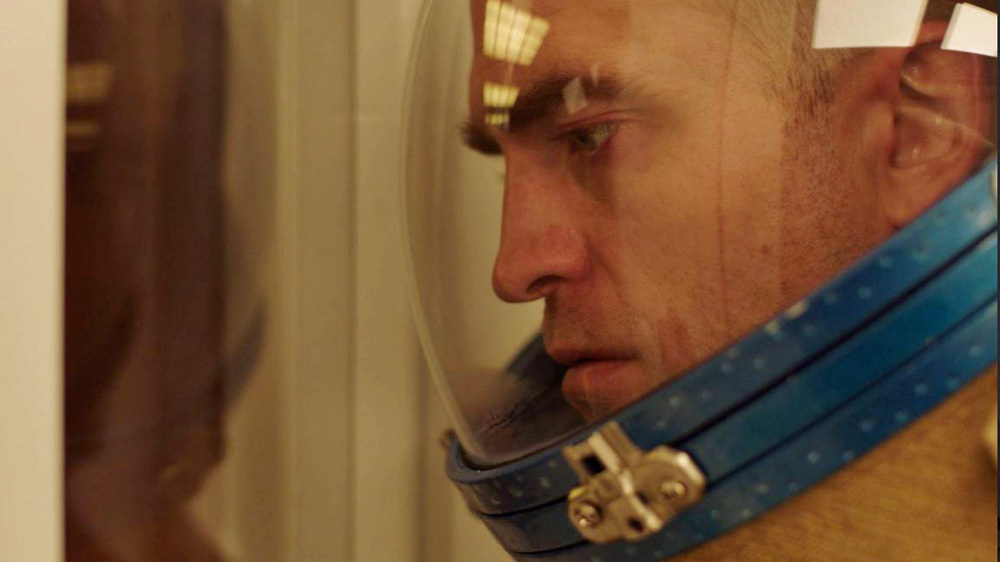
High Life
Claire Denis is a force of nature. At 72 years of age, Denis is not only consistently providing content, but she is continuing to experiment and push the boundaries of film. A true creator and artist, Denis became a woman to watch with her debut “Chocolat” and just over thirty years later she has made possibly her most provoking film to date. “High Life” is a film that will be released in mid April but many had the chance, including myself, to see it at TIFF. This is an art house, science fiction film (her first in the genre) with a rich subtext that challenges the viewer with great reward. “High Life” follows the journey of a crew of criminals (Robert Pattinson, Mia Goth, Andre Benjamin) as they escape the edges of our solar system. They were chosen because they were on death row with nothing left to live for as they hurtle toward a black hole, trying to rely on each other to survive. Frequent Denis collaborator Juliette Binoche plays the doctor in charge with an unclear motive as she experiments on them sexually. “High Life” is science fiction in premise but in execution it is a primal film about what it means to live and lose and the results are a truly haunting filmgoing experience.
“High Life” can be brutal and breathtakingly perverse as only a Denis film can be. But perhaps even more disturbingly, that brutality is undergirded by real warmth and tenderness…” – Justin Chang, LA Times
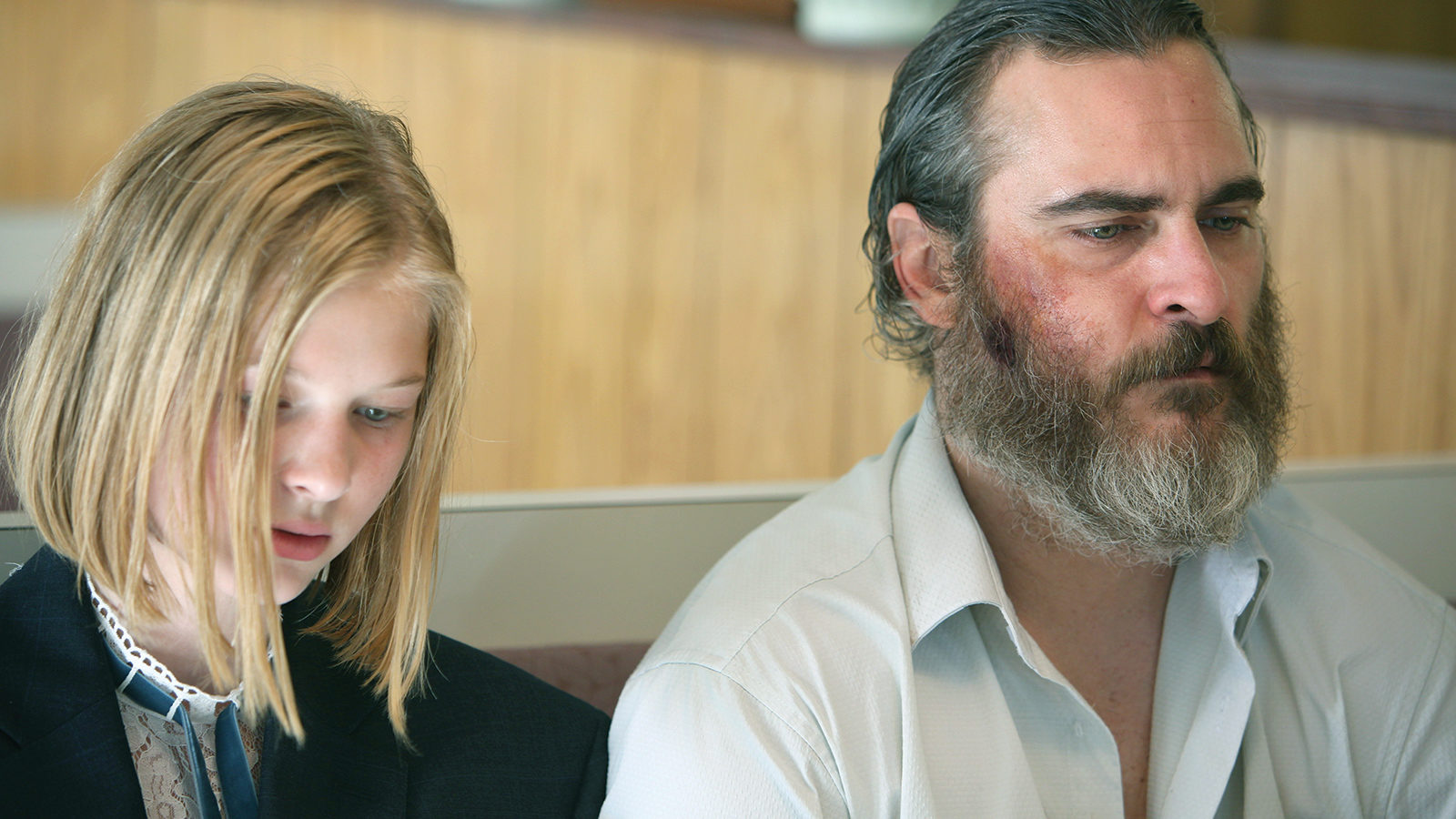
You Were Never Really Here
Every Lynne Ramsay movie is a masterclass in directing. Every time she makes a film it is obvious that she was the exact right person to bring that script to the screen. Her nuance, style and technique will be taught in film classes for a very long time. The pacing and editing of “We Need to Talk About Kevin” are undeniably brilliant. That film was the most blatantly ignored in award season, especially the directing and acting from both Tilda Swinton and Ezra Miller. “You Were Never Really Here”, starring Joaquin Phoenix, is another film that takes a script and is evolved and improved upon due to Ramsay’s care for the craft. This was a violent film about a man who tracks down missing girls for a living. This film is his particular job of uncovering a high level conspiracy as he finds the next girl. This is fairly standard material but Ramsay deals with the man not as a ruthless killer but a brute who suffers from PTSD. He has no fear and his instability is ever apparent as he embarks on his mission. The violence is rarely shown on screen with expectations from the genre always subverted that makes this another uncompromising masterpiece for Ramsay.
“We do not deserve Lynne Ramsay.” – Barry Hertz, Globe and Mail
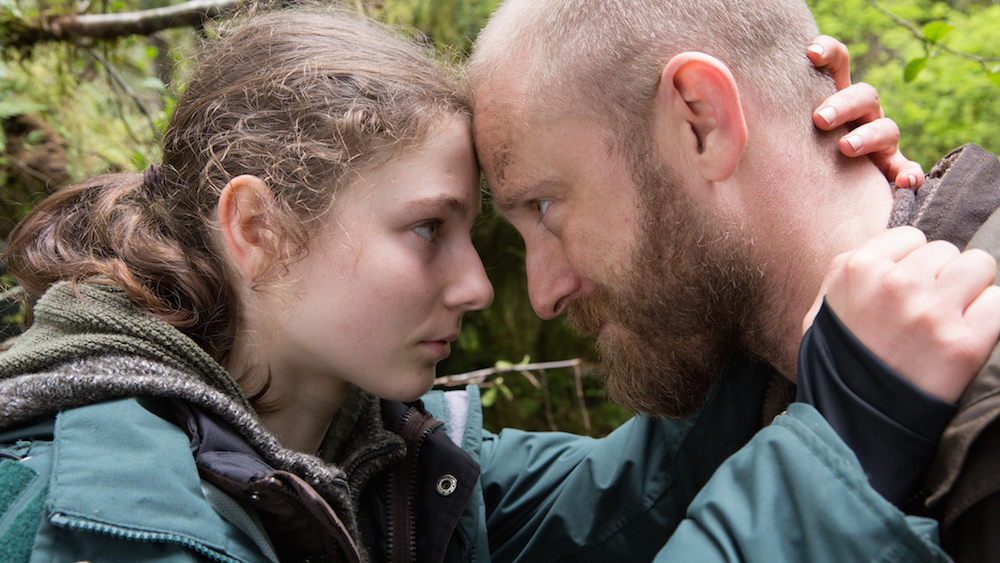
Leave No Trace
There is often a film that goes under the radar of the public eye that is an absolute favourite of industry greats. On several occasions Debra Granik’s quietly devastating film proved to be that film of 2018. Filmmakers from Stephen Merchant (The Office) to Karyn Kusama (Destroyer) and even Nicole Holofcener in her acceptance speech at the Independant Spirit Awards all spoke about this film’s excellence. Much like her previous work with Jennifer Lawrence in Winter’s Bone, Granik has made another original film about a young girl (Thomasin McKenzie) who must find incredible strength in a complicated family dynamic. This young girl is being raised by her father and survives, as people do, homeless in the woods of the Pacific Northwest. They are not homeless because they have to be but because, as their father believes, they need to be. Her father (Ben Foster) has taught her not just useful survival skills, but an aptitude for all subjects like math and history. When they are caught they are forced to live in housing, get jobs, and go to school. The father suffers from PTSD and quickly feels the need to return to the woods, doing what he thinks is best forms daughter. She has now experienced the positives of social life and what affects him might not pertain to her. This is a film of understanding and self discovery and the nuanced direction from Granik makes each person’s experience so understandable. Both uplifting and heartbreaking, “Leave No Trace” is a harrowing journey not just for the two of them back to society, but for both of them learning who they need to be in the world.
“Leave No Trace might be described in social terms as a film about homelessness, but it never loses sight of the fact that what makes a home is the privacy people need to connect with each other.” – J. R. Jones, Chicago Reader
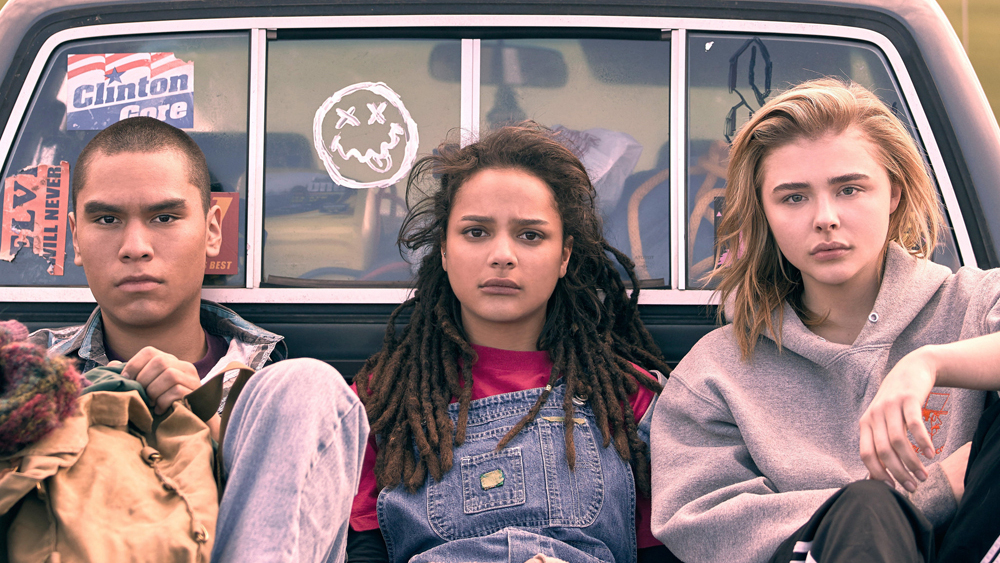
The Miseducation of Cameron Post
Often times during a year there are two films that are so similar that one will stand out and the other will be forgotten. Sometimes they are both really bad (Friends with Benifits and No Strings Attached), sometimes one is great and the other is awful (Steve Jobs and Jobs), but every so often they are both great. 2018 had two films about individuals experiencing gay conversion therapy. One was “Boy Erased” (Joel Edgerton) and the other was “The Miseducation of Cameron Post”, directed by Desiree Akhavan. Having two similar films is a great thing because this is evidence that these nightmarish camps are being spotlighted and will hopefully come to and end soon. Unfortunately, despite winning the U.S. Grand Jury Prize at Sundance, “The Miseducation of Cameron Post” has been largely unseen and forgotten. Both are true, autobiographical accounts of gay conversion therapy but where they differ is the subject of their relationships. “Boy Erased” focuses mostly on the character’s relationship with his religious parents and with Akhavan’s story, the focus is on her connection to the other people trying to be converted. We see with her how ridiculous and pointless this therapy is and the importance of community and understanding and loving yourself. Akhavan could have easily made a boiler plate coming of age redemption story and painted each character with a broad brush but there is nuance and sympathy flowing through the story that creates a compassionate and important story.
“Akhavan keeps the camera locked on Moretz’s face; every time you think she can’t possibly go closer, she does. But it’s the definition of a female gaze.” – Johanna Schneller, Globe and Mail
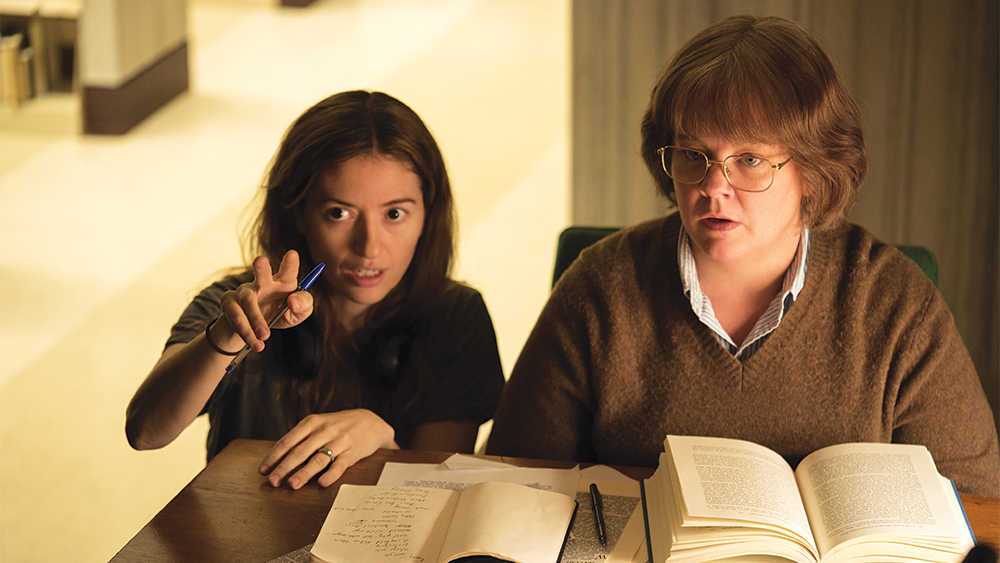
Marielle Heller, Nicole Holofcener
Can You Ever Forgive Me?
Nicole Holofcener wrote this Oscar nominated screenplay and Marielle Heller directed the film. Holofcener has been a writing force in the industry for years, having credits on countless notable television shows. She is also a successful writer and director in her own right. She directed the 2018 critically acclaimed, if under seen film, “In The Land of Steady Habits.” Marielle Heller, unlike Holofcener,is fairly new but quickly making her voice known. She started as a comedic actress, directed a great coming of age, sexual awakening film called “The Diary of a Teenage Girl.” This partnership felt natural and what they created in “Can You Ever Forgive Me?” was so impressive. They not only brought to the screen this true story of forgery but they got two career high performances from two of the industries best. Richard E. Grant plays Jack, the tragic but charismatic best friend of Lee Israel, played by Melissa McCarthy. Lee Israel, to put it mildly, is extremely unlikeable with a venomous personality but Heller and Holofcener walked that beautiful balance that lets us empathize with her, understand her, and not just pity her but root for her. Heller has been tapped to direct the new biopic “A Beautiful Day in the Neighbourhood” with Tom Hanks playing the impossibly kind Fred Rogers. Rogers was loving and calm but this came from his driving passion to provide children with the right mental tools to grow up innocent while also preparing for difficulties of life. Marielle Heller has proved that she can craft nuance within a story and is a perfect fit for this story.
“Can You Ever Forgive Me? works, largely, because director Marielle Heller and screenwriter Nicole Holofcener approach this totally unlikeable character from a place of unconditional love and understanding.” – Dorothy Parkers, The Mary Sue
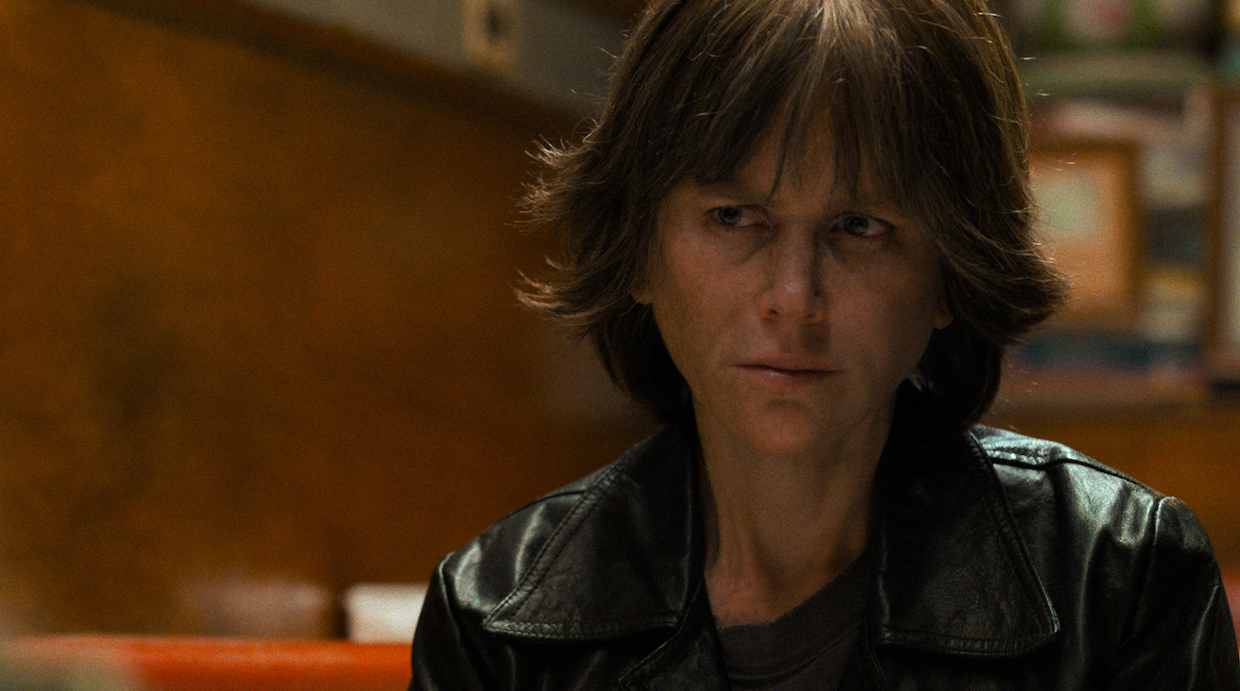
Destroyer
Nicole Kidman is a beautiful A list star. For her to take an uncharacteristic method approach to a role that is so bleak, requires makeup, and is extremely physically challenging-is a testament to the trust she had in Karyn Kusama. Kusama’s “Destroyer” is an unflinching look at an unlikeable, gritty LA detective as she attempts to tie up loose ends from her undercover past. This is an LA crime film through and through, but not on the beaches, the streets, or boardwalks. This is LA’s seedy underbelly. The desert or the alleys that we rarely see, a rough street level setting usually only seen in New York set films. This is her second film in an unconnected LA trilogy that was written by her husband. The first was psychological thriller, The Invitation that is a glance at relationships of the citizens of LA; the awkward dinners, the broken relationships, all a burning build up to an intense and unpredictable climax. “Destroyer” is a unique film in the genre and whatever her next film is it is going to feel different in the best way possible.
